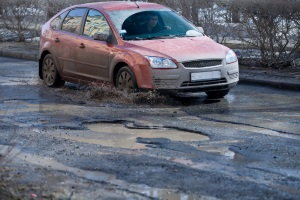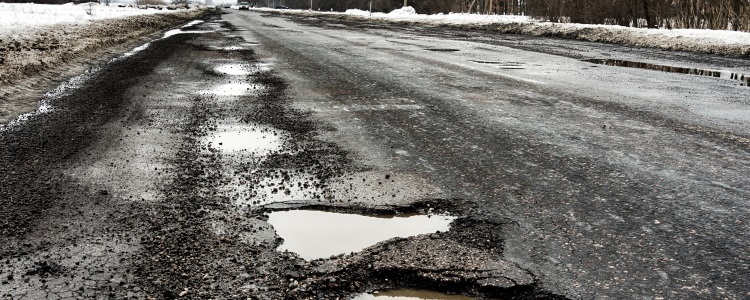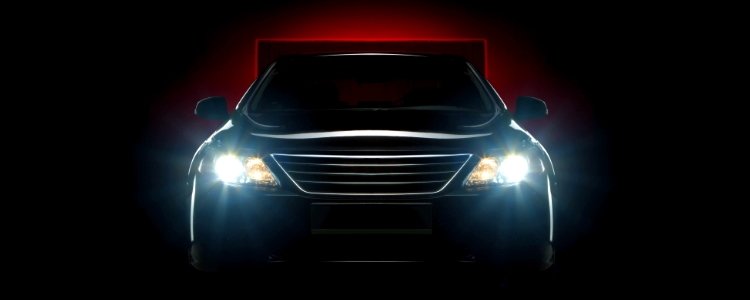After winter thaws and we move into spring and the warmer months, many drivers are bracing themselves for "pothole season." Those who live in states that experience this – like Illinois, Michigan, and New York – know how much damage a pothole can do. But potholes can happen on any road, at any time, and they can do a number on your car no matter where you are.
The Hazards of Hitting a Pothole
Minor pothole damage can occur gradually if you're constantly driving over rough roads, but the sudden jarring impact of slamming into an especially deep pothole can cause major damage to your vehicle. Some resulting issues are obvious, such as flat tires, bent wheels, or front end damage. Some problems that occur from hitting a pothole, however, can't be seen.
Even if you can't see the damage to your car caused by potholes, The Car Care Council urges drivers to recognize the signs that something may be wrong. There are three signs they recommend watching out for to help you determine if that last pesky hole in the road did some serious damage:
 If you're experiencing loss of vehicle control, swaying, or difficulty making routine turns, this could indicate your steering and suspension have been damaged. These systems are key to car safety, controlling ride and handling. Other signs of damage to steering or suspension are excessive bounciness on rough roads or bottoming out when driving on level city streets.
If you're experiencing loss of vehicle control, swaying, or difficulty making routine turns, this could indicate your steering and suspension have been damaged. These systems are key to car safety, controlling ride and handling. Other signs of damage to steering or suspension are excessive bounciness on rough roads or bottoming out when driving on level city streets.- If your vehicle can't maintain a straight path or it pulls heavily to one side, you could be experiencing alignment issues from a pothole encounter. Another symptom to be aware of in this situation is uneven tire wear. Without proper alignment, the life of your tires can be diminished, which can lead to unsafe handling issues on the road.
- Wheel and tire issues are another major issue that can be caused by potholes. These issues are the most visible of the problems typically encountered and include things such as bent or dented wheel rims, low tire pressure, and bulges or blisters on tire sidewalls. All of these issues should be checked out as soon as possible to avoid unsafe driving and the possibility of further damage or accidents.
After the impact, you should check out your car as soon as you can.
"If you've hit a pothole, it can be difficult to know if and to what extent your car has been damaged," said Rich White, executive director of the Car Care Council. "It's a good idea to describe the symptoms to a professional technician who can then check out the vehicle and make the necessary repairs to ensure safety and reliability."
Covering the Damage
Unfortunately, wear and tear that happens to your vehicle from continuous driving on rough, pothole-strewn roads isn't covered by insurance. It's up to you to maintain and repair your car if normal driving conditions cause issues more frequently than they'd otherwise occur.
However, sudden unexpected damage from a hitting a pothole may be covered if you have collision insurance. Collision insurance covers vehicles from damages caused from hitting another car or object. Read your policy carefully to make sure pothole damage is included in your policy or call your insurance agent for more information about your coverage.
Replacing Your Damaged Car
If pothole damage has made your vehicle hard to drive, it may be time to start shopping for a new ride. If the thought of car shopping scares you because of bad credit, have no fear. Auto Credit Express is here to help ease the stress of finding auto financing, no matter your credit situation.
We work with a nationwide network of special finance car dealerships that have the lending resources to help people bad credit financing. If you need a vehicle, but don't want to risk further damage to your car during pothole season, start your journey with us from the comfort of your own home. Simply fill out our no-obligation auto loan request form and we'll begin the process of matching you with a local dealer.
















